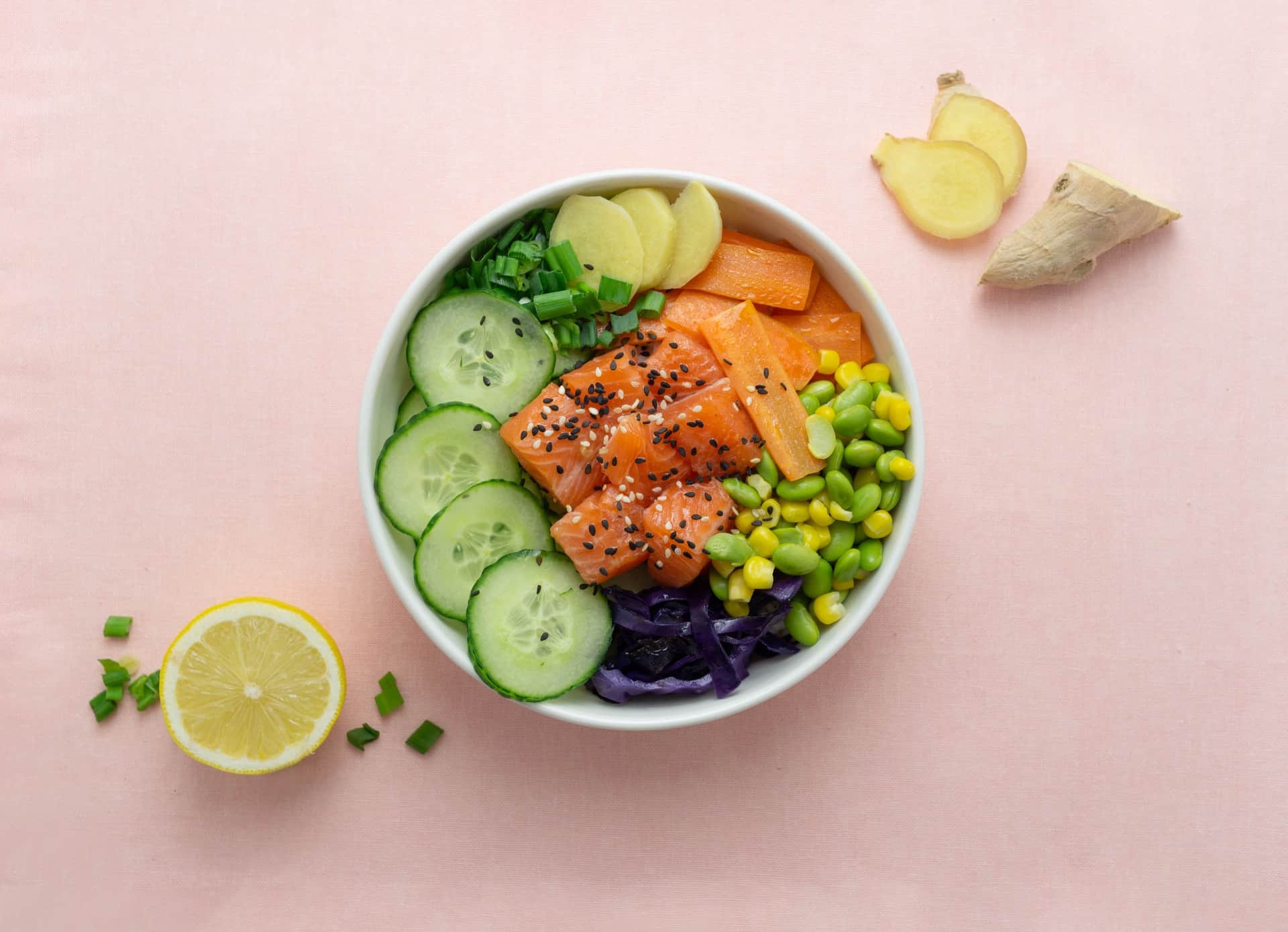Embark on a culinary journey with the healthy pescetarian diet, a lifestyle that embraces the nutritional wonders of fish and seafood while promoting overall well-being.
Delve into the depths of this ocean-inspired diet, exploring its nutritional benefits, health considerations, and practical tips for transitioning to a pescetarian lifestyle.
Introduction to the Pescetarian Diet: Healthy Pescetarian Diet
The pescetarian diet is a semi-vegetarian diet that includes fish and seafood but excludes other types of meat, such as poultry, beef, pork, and lamb. Pescetarians typically eat a variety of fish and seafood, including salmon, tuna, mackerel, shrimp, and oysters.
They also eat plant-based foods, such as fruits, vegetables, legumes, and whole grains.
Foods Typically Included in a Pescetarian Diet
- Fish and seafood
- Fruits
- Vegetables
- Legumes
- Whole grains
Foods Typically Excluded from a Pescetarian Diet, Healthy pescetarian diet
- Poultry
- Beef
- Pork
- Lamb
Nutritional Benefits of a Pescetarian Diet
A pescetarian diet offers a rich array of nutrients, including omega-3 fatty acids, protein, and vitamins. These nutrients contribute to improved heart health, reduced inflammation, and optimal brain function.
Obtain direct knowledge about the efficiency of polyboatowners through case studies.
Omega-3 Fatty Acids
- Fish and seafood are excellent sources of omega-3 fatty acids, particularly EPA and DHA.
- Omega-3s have been shown to reduce the risk of heart disease, improve cognitive function, and fight inflammation.
Protein
- Pescetarians can obtain ample protein from fish, shellfish, and plant-based sources.
- Protein is essential for building and repairing tissues, producing hormones, and regulating metabolism.
Vitamins
- Fish and seafood are rich in vitamins, including vitamin D, B12, and selenium.
- Vitamin D supports bone health, vitamin B12 is crucial for brain function, and selenium protects against oxidative stress.
Health Considerations for Pescetarians
Consuming fish and seafood offers numerous health benefits, but it’s essential to be aware of potential health concerns associated with these foods. Mercury contamination and overfishing are two significant issues that pescetarians should consider.
Mercury is a toxic metal that can accumulate in fish and seafood, particularly in larger, predatory species such as tuna, shark, and swordfish. Excessive mercury intake can lead to neurological problems, developmental disorders, and cardiovascular issues. Pregnant women, women planning to become pregnant, and young children are especially vulnerable to the effects of mercury.
Choosing Sustainable and Low-Mercury Fish Options
To minimize mercury exposure, pescetarians should choose fish and seafood from sustainable sources and opt for low-mercury species. Good choices include salmon, sardines, anchovies, herring, and tilapia. These fish are typically lower in mercury content and provide a good source of omega-3 fatty acids, protein, and other essential nutrients.
Finish your research with information from vegan diet what not to eat.
Additionally, it’s recommended to vary the types of fish consumed to reduce the risk of accumulating mercury from a single species. Pregnant women and young children should limit their intake of high-mercury fish and opt for lower-mercury alternatives.
Creating a Balanced Pescetarian Meal Plan
A well-balanced pescetarian meal plan should include a variety of foods from all food groups. This includes fruits, vegetables, whole grains, legumes, nuts, seeds, and fish. Pescetarians should aim to eat at least two servings of fish per week, and they should choose fish that are high in omega-3 fatty acids, such as salmon, tuna, and mackerel.Sample pescetarian menus or recipes:
Breakfast
Oatmeal with berries and nuts, or a tofu scramble with vegetables
Lunch
You also can investigate more thoroughly about sources of protein for pescatarians to enhance your awareness in the field of sources of protein for pescatarians.
Salad with grilled salmon, or a lentil soup with whole-wheat bread
Dinner
Grilled fish with roasted vegetables, or a pasta dish with a tomato-based sauce and seafood
Snacks
Fruits, vegetables, nuts, seeds, or yogurt
Tips for Transitioning to a Pescetarian Diet
Adopting a pescetarian diet can be a gradual and enjoyable process. Here are some practical tips to help you make the transition smoothly:
Start by reducing your meat consumption gradually. Aim to have one or two meatless days per week initially, then gradually increase the frequency.
Finish your research with information from healthy vegetarian menu.
Meal Planning
Plan your meals in advance to ensure you have healthy and satisfying pescetarian options available. Include a variety of fish and seafood, fruits, vegetables, and whole grains in your meals.
Incorporating Fish and Seafood
Experiment with different ways to prepare fish and seafood. Try grilling, baking, steaming, or sautéing. Add flavorful herbs, spices, and sauces to enhance the taste.
Cooking Techniques
Learn basic cooking techniques for preparing fish and seafood. This will help you create delicious and nutritious meals at home.
Dining Out
When dining out, look for restaurants that offer pescetarian options. Check the menu online or ask the server about vegetarian or seafood dishes.
Concluding Remarks
As you embark on this pescetarian adventure, remember that mindful choices and a balanced approach are key. Embrace the diversity of the sea while prioritizing sustainability and your health. Let the healthy pescetarian diet be your guide to a vibrant and fulfilling culinary experience.
FAQs
What are the key nutritional benefits of a pescetarian diet?
The pescetarian diet offers a wealth of nutrients, including omega-3 fatty acids, protein, vitamins, and minerals. These nutrients contribute to improved heart health, reduced inflammation, and enhanced brain function.
Are there any health concerns associated with a pescetarian diet?
While the pescetarian diet is generally considered healthy, it’s important to be aware of potential concerns such as mercury contamination and overfishing. Choosing sustainable, low-mercury fish options can help mitigate these risks.
How can I transition to a pescetarian diet gradually?
Start by gradually reducing meat consumption and incorporating more fish and seafood into your meals. Begin with pescetarian-friendly meals a few times per week and gradually increase the frequency as you become more comfortable.



